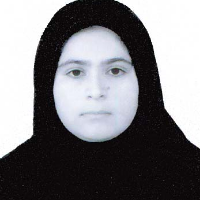Effect of Educational Intervention on Knowledge, Nutritional Behaviors, and Quality of Life of Diabetic Patients in Zabol, Iran, 2017
Diabetes, as the most common disease caused by metabolic disorders, is a major global challenge and one of the leading causes of death and disability worldwide. This disease can have negative effects on general health, well-being, and the quality of life of patients. Accordingly, the attainment of proper knowledge and behaviors can reduce the complications of this disease. Therefore, the present study aimed to investigate the effect of education on knowledge, nutritional behaviors, and quality of life of diabetic patients.
This quasi-experimental study was performed on 144 patients with type 2 diabetes mellitus (72 cases per group) in Zabol, Iran. The patients were selected out of those who were referred to diabetes and health centers. The data were collected using a researcher-made questionnaire that was administered at pretest and posttest. Subsequently, the obtained data were analyzed in SPSS software (version 20) through the relevant statistical tests.
In the case group, there was a significant relationship between age and knowledge, quality of life and behaviors, marital status and quality of life, history of disease and knowledge, as well as the method of education with knowledge and quality of life before intervention. After the intervention, the quality of life showed a significant relationship with age, gender, education level, and occupational status (P<0.05). In the control group, the knowledge revealed a significant association with age, education level, occupational status, marital status, history of diseases, income, body mass index, and method of education before the intervention (P<0.05). Moreover, there was a relationship between the history of disease and quality of life, as well as the method of education and self-care behaviors (P<0.05). After the educational intervention, the results revealed the relationship of the method of education with knowledge and self-care behaviors (P<0.05). Among the main variables of the study, in the case group, the quality of life was significantly associated with self-care behaviors after the educational intervention (P<0.05). The two groups were significantly different in terms of knowledge (after educational intervention), behaviors, and quality of life before and after the intervention (P<0.05).
Health education promotes the patientschr('39') quality of life and self-care behaviors; moreover, it prevents disease complications that can cause disability, mortality, and socioeconomic problems in society.
- حق عضویت دریافتی صرف حمایت از نشریات عضو و نگهداری، تکمیل و توسعه مگیران میشود.
- پرداخت حق اشتراک و دانلود مقالات اجازه بازنشر آن در سایر رسانههای چاپی و دیجیتال را به کاربر نمیدهد.


